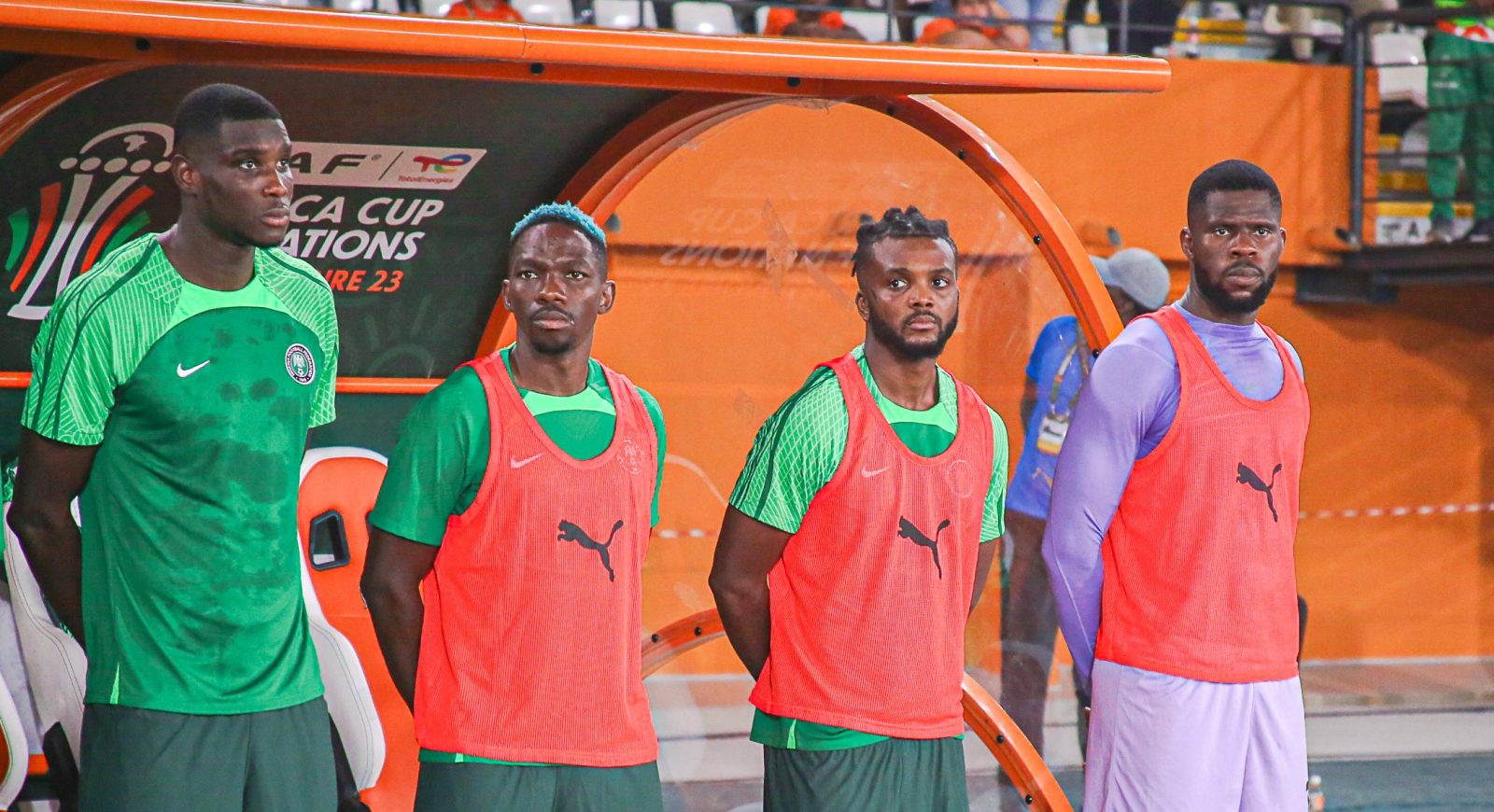Until Nigeria fixes that system, from coaching to philosophy to administration, the Eagle will continue to fly with clipped wings
By Tuka Letura
There are always two sides to every coin, and few examples capture that contrast better than Nigerian football. Across all age levels, the gulf between the performances of the men’s and women’s teams has become increasingly glaring. Heads and tails, really.
In recent years, the senior women’s national team, the Super Falcons, has remained a perfect example of a competitive African side. They’ve won the Women’s Africa Cup of Nations (WAFCON 2024, held in July 2025), qualified for both the FIFA Women’s World Cup and the Olympics, and progressed past the group stages in each of those tournaments. Their 2024 World Cup run saw them push England to a penalty shoot-out before bowing out narrowly.

The Falconets, the under-20 women’s side, recently booked their place in the third round of the 2026 FIFA U-20 Women’s World Cup qualifiers. The Flamingoes, the under-17 women’s side, have also qualified and will be participating in the FIFA U-17 Women’s World Cup, which kicks off on 17 October 2025. It’s one positive milestone to the other, no matter how small and how many opinions of them possibly doing better get.
For the men, however, it has been a very different story — one of decline, disarray, and chronic underachievement. The Super Eagles’ struggles reflect a broader rot that cuts across all levels of Nigerian men’s football, and their second-place finish at the 2024 Africa Cup of Nations does little to erase that reality.

The signs have been visible for years. The Super Eagles are currently third in their World Cup qualifying group, despite defeating Lesotho yesterday. They must still face Benin Republic next, while South Africa takes on Zimbabwe — a situation that leaves Nigeria’s qualification hopes hanging by a thread.
The same pattern extends to Nigerian men’s youth football. The under-17 team failed to qualify for the FIFA Under-17 World Cup scheduled for November, while the under-20s were eliminated by Argentina in the Round of 16 at the World Cup just days ago. The under-23 team also missed out on qualification for the Paris 2024 Olympics. To compound matters, the CHAN team crashed out in the group stage of the tournament concluded in August, rounding off a string of disappointing performances across all levels.

The Big Question Is, Where Did It Go Wrong?
Nigeria’s problem isn’t the absence of talent. If anything, the country remains one of the most gifted football nations in the world. From Victor Osimhen to Ademola Lookman, the pool of ability is deep and diverse. But the issue lies in how these talents are harnessed, deployed, and managed.
The Super Eagles lack a coach with a deep understanding of the Nigerian football identity — someone capable of building a team that reflects both the talent and temperament of Nigerian players. Over the years, tactical direction has been inconsistent, player selection has often been reactive, and game plans have lacked clarity. Coaches seem to manage players rather than build cohesive teams, with one or two exceptions.
At the developmental level, the problem worsens. Nigeria’s once-feared youth structure — the same that produced world champions at under-17 level — has eroded. Scouting networks are outdated, and grassroots football has been reduced to periodic tournaments instead of continuous systems of development. There is little integration between youth teams and the senior setup, meaning promising players rarely transition smoothly.
Add to that poor administration, erratic federation policies, and political interference, and you have a structure that suffocates growth rather than nurtures it. The Nigerian Football Federation has been lacklustre in its handling of football for many years, and even worse lately.
You could argue, to an extent, that the successes of the women’s side aren’t solely down to the federation, but also to the absence of teams with as much footballing ability and experience as the Nigerian women’s side. However, that gap continues to shrink, and there is a need to tuck shirts in, roll up sleeves, and get to work before they catch up.
The Way Forward
Firstly, Nigeria needs a national football philosophy: a clear, long-term idea of how the country wants its teams to play. It should be reflected across all levels and, above all, deliver results. This can only be achieved through dedicated effort from the nation’s football federation in the way it sets up training facilities, scouts players for the national teams at all levels, and organises pre-tournament training camps.
Secondly, Nigeria must hire coaches who understand Nigerian football. The men’s national team needs a manager who understands the players, the culture, and the terrain, not just technically but emotionally. A coach who can identify and integrate players based on synergy, not popularity. Someone capable of aligning the Super Eagles and other age-grade teams to a playing style rooted in Nigeria’s footballing DNA.
This will increase the chances and make it easier for players to move between levels without feeling out of place. It’s important to recognise that, at the national level, pride and ability go hand in hand. That balance must be achieved, and only by coaches who truly understand it.

Grassroots football also has to be revived through structured academies, better funding, and proper scouting programmes that connect local leagues to the national teams. The NFF must rebuild clear pathways from youth football to the senior level. The days when national trials were a big deal, when players across all age groups fought for a chance to be seen and make it to the big stage, need to return.
Revitalising football academies must be at the heart of this process, and there’s ample evidence, both globally and from Nigeria’s past, to prove that it works. Nothing beats a proven formula.
There’s been a worrying trend across Nigeria’s age-grade teams: the same coaches are recycled from one category to another, regardless of how poorly they’ve performed before. It’s a pattern that speaks volumes about the lack of accountability and professionalism within the system. When people fail at one level and are simply moved to another, the same issues keep repeating themselves. Nothing changes.
That’s why the federation needs to be rebuilt on clear principles: transparency, merit, and performance. Appointments should be earned, not traded. It has to operate like a proper sports organisation, not a political platform.
At the moment, Nigerian women’s football shows what can be achieved. The men’s game, meanwhile, remains stuck in confusion and poor management. The contrast proves that the problem isn’t the talent, but the system guiding it.
Until Nigeria fixes that system, from coaching to philosophy to administration, the Eagle will continue to fly with clipped wings.
Tuka Letura is an experienced sports writer with over six years of experience in the craft. He uses data and statistics to provide analysis and commentary. From regional to worldwide competitions, he has covered a wide range of sports-related events and topics. He is devoted to sharing his enthusiasm for sports with his audience and engaging them with interesting anecdotes and viewpoints.



